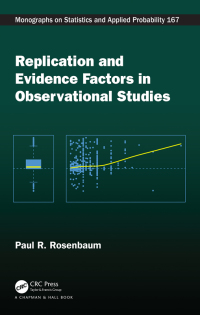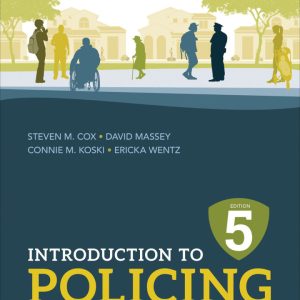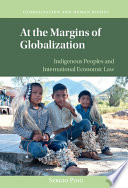Buy Replication and Evidence Factors in Observational Studies
1st Edition PDF ebook by author Paul Rosenbaum – published by Chapman & Hall in 2021 and save up to 80% compared to the print version of this textbook. With PDF version of this textbook, not only save you money, you can also highlight, add text, underline add post-it notes, bookmarks to pages, instantly search for the major terms or chapter titles, etc.
You can search our site for other versions of the Replication and Evidence Factors in Observational Studies
1st Edition PDF ebook. You can also search for others PDF ebooks from publisher Chapman & Hall, as well as from your favorite authors. We have thousands of online textbooks and course materials (mostly in PDF) that you can download immediately after purchase.
Note: e-textBooks do not come with access codes, CDs/DVDs, workbooks, and other supplemental items.
eBook Details:
Full title: Replication and Evidence Factors in Observational Studies
1st Edition
Edition: 1st
Copyright year: 2021
Publisher: Chapman & Hall
Author: Paul Rosenbaum
ISBN: 9780367751708, 9781000370034
Format: PDF
Description of Replication and Evidence Factors in Observational Studies
1st Edition:
Outside of randomized experiments, association does not imply causation, and yet there is nothing defective about our knowledge that smoking causes lung cancer, a conclusion reached in the absence of randomized experimentation with humans. How is that possible? If observed associations do not identify causal effects in observational studies, how can a sequence of such associations become decisive? Two or more associations may each be susceptible to unmeasured biases, yet not susceptible to the same biases. An observational study has two evidence factors if it provides two comparisons susceptible to different biases that may be combined as if from independent studies of different data by different investigators, despite using the same data twice. If the two factors concur, then they may exhibit greater insensitivity to unmeasured biases than either factor exhibits on its own. Replication and Evidence Factors in Observational Studies includes four parts: A concise introduction to causal inference, making the book self-contained Practical examples of evidence factors from the health and social sciences with analyses in R The theory of evidence factors Study design with evidence factors A companion R package evident is available from CRAN.





